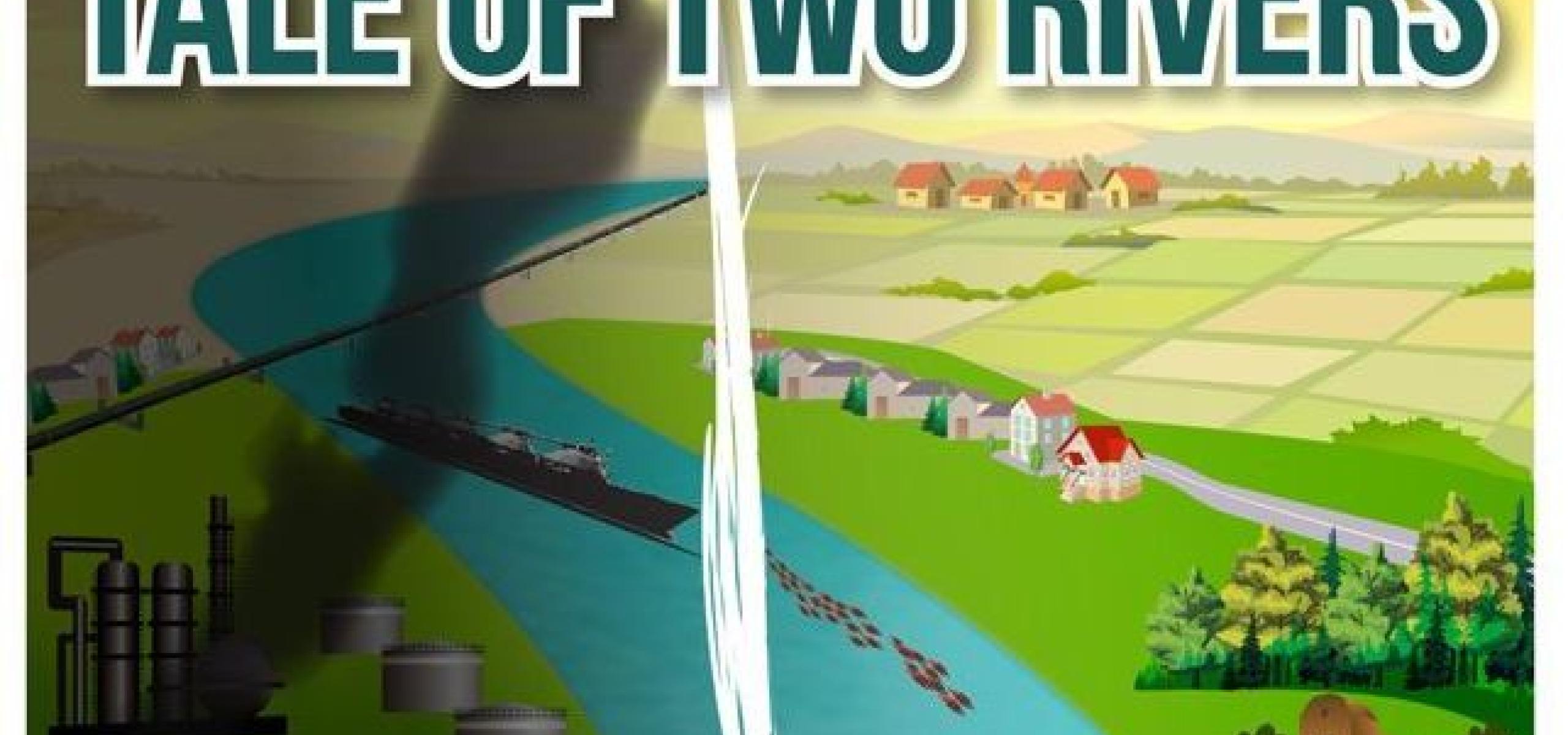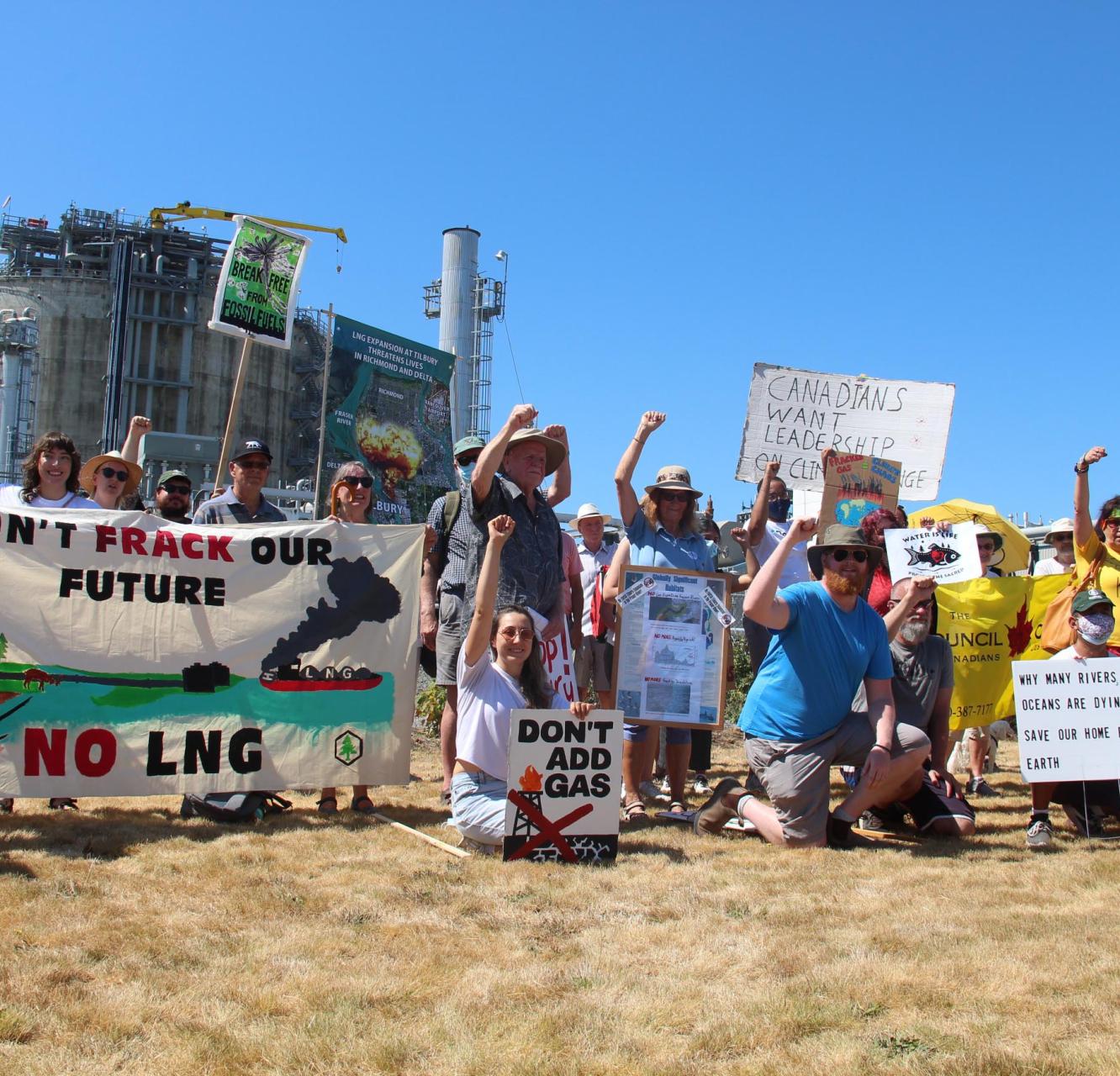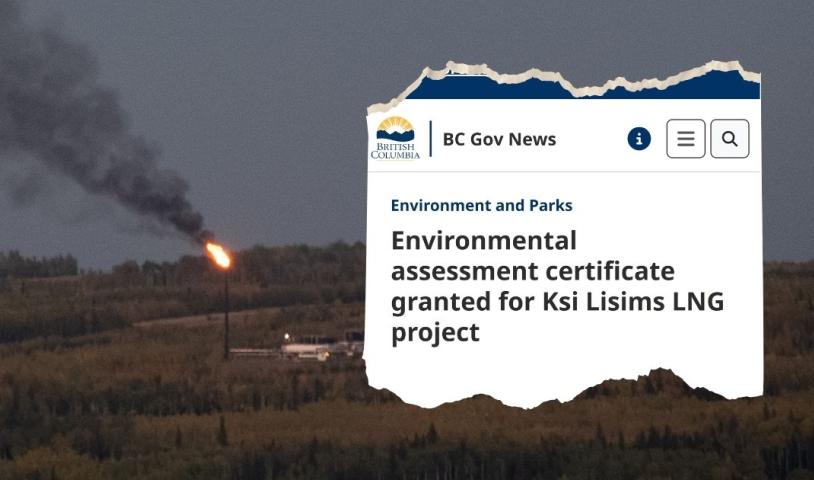Election: A river runs through election debate
Thursday, October 8, 2015
With proposals to build an expanded LNG facility in Delta, a coal terminal in Surrey, and a jet fuel terminal in Richmond, the south arm of the Fraser River alone could see an estimated 460 Panamax-sized tanker runs per year in the near future.
The environment, particularly as it pertains to the Fraser River, is an election issue that has largely pitted the power-holding Conservatives against all three opposition parties in Richmond.
Budget cuts to the Department of Fisheries and Oceans and the Canadian Coast Guard, in addition to amended federal environmental assessment laws have stirred controversy.
A lightning rod for environmental concerns in Richmond has been the planned jet fuel terminal, which saw no exclusively federal environmental assessment due to recent legislative changes.
Fuel Terminal
An artist rendering (from VAFFC) of the proposed jet fuel terminal in Richmond B.C. The tanker shown here is shorter than a Panamax class tanker that could be docking on the south arm of the Fraser River.
Meanwhile, the ruling Conservative government has touted the aforementioned projects as job creators and beneficial for the economy.
But concerns run deep about the approval process with Eoin Madden, a spokesperson for the Wilderness Committee, who calls the projects a “juggernaut of fossil fuel development.”
In June, 2012, an omnibus piece of legislation, Bill C-38 — the Jobs, Growth and Long-term Prosperity Economic Action Plan 2012 — was passed.
Despite the name, much of the bill actually amended the Canadian Environmental Assessment Act of 1992 (CEAA).
Bill C-38 means the federal government no longer requires a review from the Canadian Environmental Assessment Agency for all projects on federal land.
Critics, such as the NDP and the Liberals, have charged this has limited the number and scope of reviews the Canadian government conducts — case in point is the jet fuel terminal, as a federal assessment wasn’t deemed necessary.
With many projects, Ottawa has passed on that responsibility to the provinces and/or the National Energy Board.
While Conservative candidate Kenny Chiu has stated a federal review of the jet fuel project is unnecessary and Conservative MP Alice Wong claims the new bill avoids duplication, Liberal candidate Joe Peschisolido has called the changes an “abdication of responsibility” on the part of Ottawa.
NDP candidate Scott Stewart has called for an independent review.
Under the new laws, even federal, independent reviews are less stringent, as outlined by the Alberta-based Environmental Law Centre.
The non-profit environmental think tank notes, Bill C-38 resulted in the following: federal assessments no longer need to consider the need for the project, nor the alternatives; legislated timelines for independent reviews; a reduction of the number of federal departments looking at a given project; public participation limited to “interested parties.”
Simon Fraser University political science professor Marjorie Cohen said, “the voices of communities have been absolutely lost” under the new laws.
In addition to the new CEAA, changes to the Fisheries Act resulted in less protection for fish and habitat, according to Cohen.
“Any kind of control they (the Department of Fisheries and Oceans) have had over habitat has been gutted. Mostly, (Prime Minister) Stephen Harper has done this by attrition of funding,” said Cohen (starting this year, the DFO budget will be cut by $100 million over three years).
The scope of reviews has also been called into question.
Cohen noted with the Kinder Morgan pipeline review, conducted by the National Energy Board, “certain issues could not be brought up so the cumulative effect of ecological damage could not be put forth.”
With the jet fuel project there is no requirement to study the impact of shipping on whale habitat, for example.
Port Metro Vancouver is now tasked to conduct many environmental projects (studying sonar impacts on whales, habitat reconstruction).
Local environmental group VAPOR has stated there is a fundamental conflict of interest with the port being in charge of protecting the environment.
Coincidently, Cohen notes the National Energy Board is the only entity in charge of reviewing many pipeline projects (including the jet fuel pipeline).
With Harper having appointed the head of the NEB, decisions have become politicized, said Cohen.
“This is very problematic because it makes this less of an environmental review and more of a rubber stamp,” said Cohen.
Madden said there appears to be no plan — environmental, economic or otherwise — for the Fraser.
“We found that there was no land-use plan that would govern whether any of these terminals should be built, including the aviation import terminal,” he said.
The Richmond Chamber of Commerce reported a similar finding last year, calling on the government to provide a more holistic framework for industry and the environment on the Fraser.

